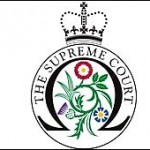Law Weblog
Judges may get power to grant royal pardons
Monday 26 October 2009 at 7:53 am | In News | Post Comment
The Government has announced a review into the future handing of applications for royal pardons, which could result in judges being given the power to grant royal pardons for convicted offenders.
Secretary of State for Justice Jack Straw called for a consultation after the high profile pardon of Michael Shields and has said it should no longer be the job of a politician to take on the quasi-judicial role. Shields, who was convicted of attempted murder in Bulgaria in 2005, was pardoned by the justice secretary, Jack Straw.
http://www.justice.gov.uk/latest-updates/royal-prerogative.htm
New powers help victims break cycle of domestic violence – ‘Go’ orders
Wednesday 21 October 2009 at 11:09 am | In News | Post Comment
Violent partners will be banned from their homes and their victims given support to escape abuse under new government proposals.
The police will be able to issue domestic violence protection orders, known as ‘Go’ orders, to bar the perpetrators of domestic violence from their homes for up to a fortnight, giving their victims breathing space to consider their options.
Currently, victims can only be protected immediately if the perpetrator is charged and bail conditions set, or if a civil injunction is sought by the victim. This means that in many cases, the only option for victims is to escape to temporary accommodation. The ‘Go’ orders will allow police to give evidence on the victim’s behalf, removing the perpetrator from the home and preventing contact with the victim where they are concerned about the on-going risk of violence.
‘Go’ orders will be a valuable tool
Home Secretary Alan Johnson said, ‘It is not right that victims of domestic violence, who have already suffered so much, are forced out of their home. It is both safer and fairer to remove the abuser.
‘”Go” orders will be another valuable tool to help protect victims, and tackle perpetrators of domestic violence.’
Chief Executive of Refuge, Sandra Horley OBE said, ‘Protecting abused women and children is at the heart of what Refuge does. These new orders will protect women from further risk of domestic violence if they are implemented effectively.’
Restraining orders
These new powers will complement restraining orders which come into force on 30 September, to help protect victims of harassment (including domestic abuse), where an offender has been prosecuted for any criminal offence, not just harassment offences.
Criminal courts will also have greater freedom to grant restraining orders when abusers appear before them, giving victims immediate protection and sparing them the ordeal of starting a separate civil action.
Implementing the new orders
New legislation will be needed to implement the orders. They will be piloted in two, yet to be decided, police force areas to test the impact of the orders, in particular the impact on victim’s safety.
Major constitutional statements by Lord Chief Justice
Tuesday 20 October 2009 at 10:04 pm | In News | Post Comment
The warnings followed the injunction obtained by an oil company Trafigura, which effectively suppressed a question asked in Parliament by Labour MP Paul Farrelly.
Second, he called for Parliament to pass new libel laws to reverse the effect of restrictive rulings by British courts which have made London the libel capital of the world.
Several American states including California have passed laws which mean local citizens do not have to obey libel judgements laid down in British courts.
The governor of California Arnold Schwarzenegger objected when a British judge ordered all copies of a book about a Saudi oil sheikh’s alleged support for terrorism to be pulped, even though the had never been published in Britain.
Third, Lord Judge warned against any attempt to restrict the prosecution of criminals because of the cost of a trial, which has been proposed by the Director of Prosecutions Keir Starmer QC.
Lord Judge said: “I am perfectly happy with the idea that for very minor infringements of the criminal law by an individual of good character, a warning or a caution is a perfectly sensible way of dealing with it.”
“What I am not happy about is out-of-court disposals for things said to be very minor which are not in fact very minor. I am not in favour of out-of-court disposals for infringements of the criminal law by people who have committed infringements before.”
Police allowed to keep all criminal records
Tuesday 20 October 2009 at 7:08 am | In News | Post Comment
The court of appeal said convictions, however old and however minor, can be of value in the fight against crime.
The police added if the original ruling had been upheld, the result would have been a “liars’ charter” – where people would be able to deny criminal convictions on job applications if they knew the deletion deadline had passed.
The five convicted people who had contested the case were refused permission to appeal to the Supreme Court.
The records are also used by the courts, the Criminal Records Bureau, the Independent Safeguarding Agency, the Crown Prosecution Service and the Home Office.
The original ruling came about after five people complained to the information commissioner because their criminal records showed up when they applied for jobs.
One of the cases was a record held by Humberside Police about the theft of a 99p packet of meat in 1984. The person involved, who was under 18 at the time, was fined £15.
Jonathan Sumption QC will not become Supreme Court Justice
Friday 16 October 2009 at 12:22 pm | In News | 2 Comments
Jonathan Sumption, QC, described as having a “brain the size of a planet”, appears to have been ruled out of filling the vacant post of Supreme Court Justice – Law Lord. Mr Sumption is among the most sought-after Queen’s Counsel at the Bar, coming top of numerous lists in legal directories.
The job was advertised in the press last week, but Court of Appeal judges are reported to hve told their colleagues in the Supreme Court that the new justice should be chosen from the ranks of serving judges.
To appoint Sumption directly from the bar to the SC will be a disincentive to others at the Bar to become judges if they can remain in practice, earning up to five times as much, and apply for the most senior posts towards the end of their careers.
Other contenders for the top job include Lords Justices Carnwath, Dyson (who was a contender for the Master of the Rolls) Dix, Laws and Sedley.
Under the Constititutional Reform Act 2005, the Supreme Court justices are chosen through a procedure involving a small selection panel chaired by Lord Phillips of Worth Matravers, the President of the court.
Bill of Rights 1688 flouted?
Tuesday 13 October 2009 at 12:13 pm | In News | Post CommentToday’s published Commons order papers contain a question to be answered by a minister later this week. The Guardian is prevented from identifying the MP who has asked the question, what the question is, which minister might answer it, or where the question is to be found.
The Guardian is also forbidden from telling its readers why the paper is prevented – for the first time in memory – from reporting parliament. Legal obstacles, which cannot be identified, involve proceedings, which cannot be mentioned, on behalf of a client who must remain secret.
The only fact the Guardian can report is that the case involves the London solicitors Carter-Ruck, who specialise in suing the media for clients, who include individuals or global corporations.
This appears to be the question in, found at Parliament.uk, “Questions for Oral or Written Answer beginning on Tuesday 13 October 2009? (292409)
61
N Paul Farrelly (Newcastle-under-Lyme): To ask the Secretary of State for Justice, what assessment he has made of the effectiveness of legislation to protect (a) whistleblowers and (b) press freedom following the injunctions obtained in the High Court by (i) Barclays and Freshfields solicitors on 19 March 2009 on the publication of internal Barclays reports documenting alleged tax avoidance schemes and (ii) Trafigura and Carter-Ruck solicitors on 11 September 2009 on the publication of the Minton report on the alleged dumping of toxic waste in the Ivory Coast, commissioned by Trafigura.
And this is a report on how the oil company Trafigura tried to cover up pollution in Africa.
The world of Twitter and Blogs are quite excited about this story, but at the time of writing the BBC is silent on the topic.
“Blaney’s Blarney Order” injunction through Twitter
Sunday 11 October 2009 at 11:59 am | In News | Post Comment
The subject matter was a blog called Blaney’s Blarney (donalblaney.com) and the order is likely to become known as a “Blaney’s Blarney Order”.
The order requires an unknown Twitter user, anonymously posting under the same name, to stop posting and immediately identify themselves.
Anonymous breaches of the law on Internet sites now have a precedent and this is a huge step forward in preventing anonymous abuse of the internet.
Donal Blaney, the victim of the anonymous impersonation and the principal of Griffin Law, said: “This is an important step in dealing with online bullying.
Thursday 1 October 2009 at 6:49 am | In News | Post Comment

The court is independent of Parliament and the new court is the final court of appeal in all matters other than criminal cases in Scotland, as was the House of Lords
The Ministry of Justice has spent £59m separating the court from the House of Lords legislative body and Lord Phillips will be the first President of the Supreme Court, sitting with 10 other Justices who were until last month the Law Lords.
Its first case today will be a relatively minor issue relating to legal costs, but next week will decide a case concerning terrorist suspects whose assets have been frozen.
Some commentators have criticised the change, arguing that it is largely a cosmetic exercise and completely unnecessary, decided on a whim by Tony Blair.
Bar students asked not to start till next year
Saturday 26 September 2009 at 8:16 am | In News | Post CommentThe Bar Standards Board has told BPP Law School to ask some of its Bar Vocational Course (BVC) students to delay their start dates because there are too many BVC students.
BPP has offered a “loyalty discount” of 15 per cent on next year’s fees to students who defer.

BPTC students pay will pay £14,700 for the course next year, but the aptitude test for entry onto the BPTC will not now go ahead after concerns about it were raised by the Office of Fair Trading.
The aim of the test was to filter out students who do not have a realistic chance of passing the year-long course and thereby close the gap between the number of students undertaking the BVC and the number of pupillages.
Lawyers earn more from busking than legal aid
Friday 25 September 2009 at 6:41 am | In News | 1 Comment
In the 40 minutes they busked they raised nearly £70 – proving that they could do better as street musicians then defending people’s rights. They have donated the money to the Law Society Charity, which distributes funds to other charities and initiatives.
Full report here
Powered by WordPress with Pool theme design by Borja Fernandez.
Entries and comments feeds.
Valid XHTML and CSS. ^Top^